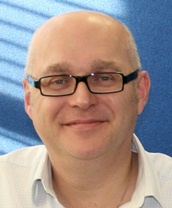Hewlett Packard Enterprise has reported Q1 net revenue of $12.7bn, down 3% from the prior-year period but up 4% on a constant currency basis.
"During our first quarter as an independent company we saw the progress that comes from being more focused and nimble," said Meg Whitman, president and chief executive officer, Hewlett Packard Enterprise.
"We delivered a third consecutive quarter of year-over-year constant currency revenue growth, and excluding the impact of recent M&A activity, we saw revenue growth in constant currency across every business segment for the first time since 2010."
Enterprise Group (ETOLF) revenue was $7.1bn, up 1% year over year, up 7% in constant currency, with a 13.4% operating margin.
Servers revenue was down 1%, up 5% in constant currency. Storage revenue was down 3%, up 3% in constant currency. Networking revenue was up 54%, up 62% in constant currency. And Technology Services revenue was down 9%, down 3% in constant currency.
Enterprise Services revenue was $4.7bn, down 6% year over year, flat in constant currency, with a 5.1% operating margin. Infrastructure Technology Outsourcing revenue was down 8%, down 2% in constant currency, and Application and Business Services revenue was down 3%, up 3% in constant currency.
Software revenue was $780m, down 10% year over year, down 6% in constant currency, with a 17.4% operating margin. License revenue was down 6%, down 2% in constant currency, support revenue was down 13%, down 9% in constant currency, professional services revenue was down 7%, down 2% in constant currency, and software-as-a-service (SaaS) revenue was down 9%, down 7% in constant currency.
Financial Services revenue was $776m, down 3% year over year, up 3% in constant currency, net portfolio assets were up 4%, up 9% in constant currency, and financing volume was down 4%, up 3% in constant currency. The business delivered an operating margin of 12.9%.

 Eight students from Bury College gained insights into the world of telecommunications following a visit to Nimans.
Eight students from Bury College gained insights into the world of telecommunications following a visit to Nimans. Genius Networks MD James Arnold-Roberts has become CEO and brought G3 Comms under his wing.
Genius Networks MD James Arnold-Roberts has become CEO and brought G3 Comms under his wing. It wasn't so long ago that employers were right to believe that they were driving the jobs market. I'm not just talking about the last recession, but even further back through the boom times of the nineties and noughties, writes Clive Jefferys of recruiter JMA Network.
It wasn't so long ago that employers were right to believe that they were driving the jobs market. I'm not just talking about the last recession, but even further back through the boom times of the nineties and noughties, writes Clive Jefferys of recruiter JMA Network.